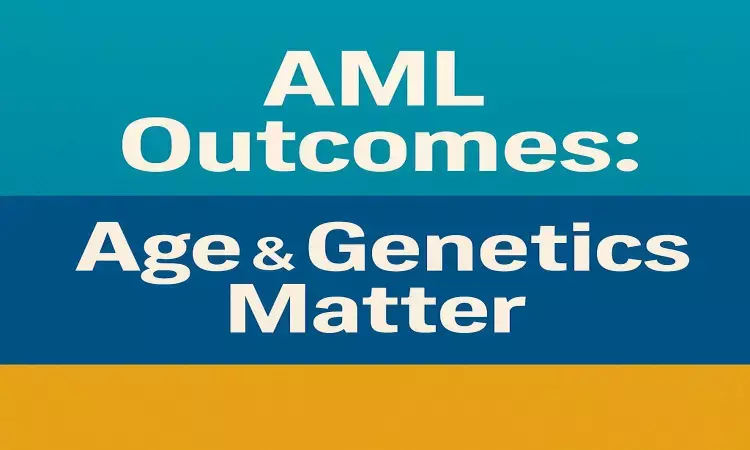- Home
- Medical news & Guidelines
- Anesthesiology
- Cardiology and CTVS
- Critical Care
- Dentistry
- Dermatology
- Diabetes and Endocrinology
- ENT
- Gastroenterology
- Medicine
- Nephrology
- Neurology
- Obstretics-Gynaecology
- Oncology
- Ophthalmology
- Orthopaedics
- Pediatrics-Neonatology
- Psychiatry
- Pulmonology
- Radiology
- Surgery
- Urology
- Laboratory Medicine
- Diet
- Nursing
- Paramedical
- Physiotherapy
- Health news
- Fact Check
- Bone Health Fact Check
- Brain Health Fact Check
- Cancer Related Fact Check
- Child Care Fact Check
- Dental and oral health fact check
- Diabetes and metabolic health fact check
- Diet and Nutrition Fact Check
- Eye and ENT Care Fact Check
- Fitness fact check
- Gut health fact check
- Heart health fact check
- Kidney health fact check
- Medical education fact check
- Men's health fact check
- Respiratory fact check
- Skin and hair care fact check
- Vaccine and Immunization fact check
- Women's health fact check
- AYUSH
- State News
- Andaman and Nicobar Islands
- Andhra Pradesh
- Arunachal Pradesh
- Assam
- Bihar
- Chandigarh
- Chattisgarh
- Dadra and Nagar Haveli
- Daman and Diu
- Delhi
- Goa
- Gujarat
- Haryana
- Himachal Pradesh
- Jammu & Kashmir
- Jharkhand
- Karnataka
- Kerala
- Ladakh
- Lakshadweep
- Madhya Pradesh
- Maharashtra
- Manipur
- Meghalaya
- Mizoram
- Nagaland
- Odisha
- Puducherry
- Punjab
- Rajasthan
- Sikkim
- Tamil Nadu
- Telangana
- Tripura
- Uttar Pradesh
- Uttrakhand
- West Bengal
- Medical Education
- Industry
Age and Genetics Influence Outcomes in Acute Myeloid Leukemia Patients: CETLAM Study

Patient age and genetic risk significantly influence remission and survival outcomes in acute myeloid leukemia (AML), a recent study has reported.
Published in Blood Cancer Journal(Nature Publishing Group, 2025), the multicenter study by the Spanish CETLAM Group evaluated 1,034 adults aged 18–70 years with newly diagnosed AML who were deemed fit for intensive chemotherapy. Conducted between 2012 and 2022 across 15 hospitals, the prospective AML-12 protocol (ClinicalTrials.gov: NCT04687098) assessed real-world outcomes following a uniform regimen of induction cytarabine/idarubicin, high-dose cytarabine (HDAC) consolidation, and allogeneic hematopoietic cell transplantation (alloHCT) where indicated.
Key Outcomes of the study include:
Remission and survival rates differed significantly by age group:
- Complete remission (CR) rate: 77% overall; 79% in patients ≤60 years vs. 73% in those >60 (p = 0.03).
- 4-year overall survival (OS): 53% in younger vs. 33% in older patients (p < 0.001).
- Event-free survival (EFS): 44% vs. 29%; induction mortality: 8% vs. 15% in younger and older patients, respectively.
Genetic risk stratification per ELN-2022 was a key predictor of outcome:
- Patients with favorable profiles (e.g., biallelic CEBPA or NPM1mut/FLT3low) had excellent outcomes, with 4-year OS up to 86%.
- Adverse-risk patients (e.g., TP53 mutations, complex/monosomal karyotype, MECOM rearrangements) showed poor results, with 4-year OS of 14% and EFS of 12%.
- AlloHCT feasibility was lowest in this high-risk group, with only 14% of MECOMr patients undergoing transplant in CR1.
A novel prognostic model—Intensive Chemotherapy Score for AML (ICSA)—was developed and validated:
- Based on age, ECOG, renal and hepatic function, leukocyte counts, and genetic category.
- Stratified patients into six risk tiers with distinct 4-year OS outcomes: 85% (very low risk) to 0% (very high risk).
- Validated in an external cohort (n=581; C-index = 0.71).
This study emphasizes that not all fit AML patients benefit equally from intensive regimens. The integration of molecular risk and clinical parameters via the ICSA score offers a practical, evidence-based tool for oncologists and hematologists to refine treatment strategies. Further, high-risk older patients may require early consideration of alternative or investigational therapies over standard intensive chemotherapy.
Reference:Oñate G, Garrido A, Arnan M, et al. Diverse real-life outcomes after intensive risk-adapted therapy for 1034 AML patients from the CETLAM Group. Blood Cancer Journal (Nature Publishing Group). 2025;15:4. https://doi.org/10.1038/s41408-024-01205-5
Meghna A Singhania is the founder and Editor-in-Chief at Medical Dialogues. An Economics graduate from Delhi University and a post graduate from London School of Economics and Political Science, her key research interest lies in health economics, and policy making in health and medical sector in the country. She is a member of the Association of Healthcare Journalists. She can be contacted at meghna@medicaldialogues.in. Contact no. 011-43720751


